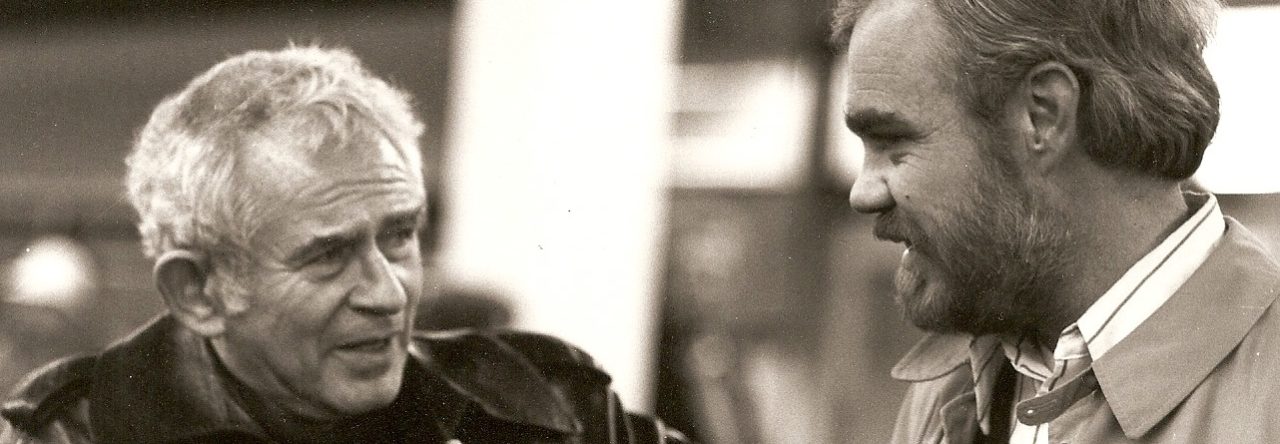The extent to which Mailer’s oeuvre will resonate with a new audience may depend on whether a line can be drawn between his dual role as renowned writer and notorious public persona. The division between the two is often undetectable. At times, this is by Mailer’s design, and at times it’s due to his volatile presence at the forefront of the American cultural revolution.
Tag: review Page 5 of 8
Heroically brave and mad, prodigious in his industry and appetites, Norman Mailer was an altogether excessive figure. Since his death in 2007 there have been several biographies, but this is the big one — big enough to accommodate a triple or quadruple life, let alone a double. It is also the official one, written at Mailer’s request by J. Michael Lennon, his friend, collaborator and literary executor, who is respectful and affectionate but not hagiographic.
The book is fascinating throughout. All readers will benefit from Lennon’s treatment of Mailer’s writing process, his compulsive philandering, his often crass self-promotion, his unexpected discipline, his capacity for violence, his attraction to and sympathy for criminals, his relationships with his many children and his peers, and his risk-taking in all areas of life and art.
Instead of merely continuing Lucid’s work, Lennon began anew and very much made it his own. At times, he’s too willing to give his pages over to Mailer admirers (Mailer included) to embroider testimonials to his greatness. But in the main Lennon has done a very fine job of chronicling most every possible dimension of a sprawling, brawling, daredevil-cum-car wreck of a singularly great American writer’s life – and I can say that without fear of a 150,000-word letter to the editor disputing everything I’ve just written, save that Norman Mailer was great.
Mailer married six times and had nine children; there were innumerable affairs, parties and arguments. He published 44 books. He never stopped. After one of his children is born, he leaves the hospital and that night begins an affair with his sister-in-law.
Lee Siegel writes: “A new Norman Mailer biography shows that his life may have been his greatest work of art.”
The biographies of most writers go roughly like this: born, type, type, type, acclaim, type, type, type, marry, type, type, type, die.
Mailer is the exception. He never stinted on the typing, being a stranger to brevity – ‘I can’t get someone through a door,’ he once said, ‘without blowing a thousand words.’
But he also found plenty of time for activities that other authors can only imagine, such as sex and violence.
“Be regular and orderly in your life like a bourgeois,” Flaubert wrote, “so that you may be violent and original in your work.” Try telling that to Norman Mailer. He fought in the war and he fought in bars. He had six wives and stabbed one of them. He drank heavily, took drugs, slept with anyone he could and stood for New York mayor. He fell out with everyone who picked up a pen. Amid the mayhem he wrote great journalism, wildly uneven novels, bad poetry and made truly abysmal films. At his best he lived originally, challenging every constricting convention; at his worst he was simply violent.
Mailer is like America. Loud and colorful, diverse, sometimes brilliant, often the victim of his own self regard, believer in an exceptionalism mostly glimpsed in the mirror, and willing to die trying or for the right cause. As he said about his own country: “The thing that distresses me about America is that for all the country’s done, I don’t think it’s done one quarter of what it should. I believe it was destined, by history, if you will, to be the greatest country that ever existed. I don’t think it’s come near it.”
Thanks to J. Michael Lennon, we see the pugnacious pontificator in all his glory and warts.
